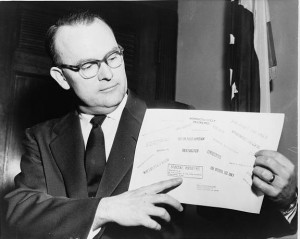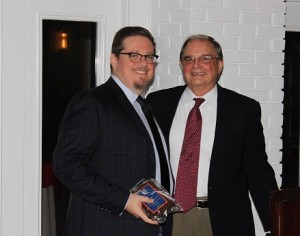
Book
Presidential Privilege and the Freedom of Information Act
(Forthcoming, under contract with Edinburgh University Press as part of their series ‘New Perspectives on the American Presidency’)
This research details the narrative of the politics and process surrounding the legislative development and early implementation of the Freedom of Information Act (FOIA) from 1946 to 1976. The development of FOIA is a fascinating case for multiple reasons. First, presidential politics will focus on the White House agenda in how the president serves to influence Congress. For this case, the table is turned by allowing us to examine how Congress is able to foist policy on the president, giving insight into how the White House must contend with Congress’ policy agenda. Second is that every administration during this period was adamantly opposed to FOIA, during its construction and following implementation, as FOIA serves as an institutional or congressional check on administrative power. Third, the development and implementation of FOIA is intricately tied to the presidents’ use of executive privilege in the modern presidency. The rise of the Cold War ushered in the modern American security state, shifting administration priorities on access to information which redefined the politics surrounding presidential claims of executive privilege. The development of FOIA was a congressional response to these executive actions. Last, FOIA led to institutional reform that shifted the governing of each branch along with the politics operating within and between branches. This policy also transformed the relationship between the people and government, creating citizen oversight of the executive branch.
Development of transformative policy that reshapes institutions and the politics that functions within takes shape over many years, often spanning multiple Congresses and administrations. Taking this long-term approach, a Continuing Legislative Development (CLD) cycle is created that provides the structure for understanding the politics of policy development. Operating within the CLD cycle, multiple factors are examined in three main areas. The first area focuses on shifting societal demands that entails understanding the rise of issue saliency and agenda setting, which includes public and media attention. The second area takes a cognitive approach by applying a social learning perspective to understand how the rise of the Cold War led to a paradigm shift for the executive branch that rearranged priorities leading to a near shutdown of information flows to Congress and the public. This shift in thinking us exemplified through the modern usage of executive privilege, where we can see a continual back-and-forth between the president and Congress where they respond-in-kind to actions taken by the other. The third area centers on institutional politics, specifically by examining how individual members of Congress or the administration -power entrepreneurs- are able to influence the politics and policy development.
The book will take each presidential administration into account during the period under examination, detailing how each president and the Congress they faced dealt with the issues surrounding government secrecy and access to information from Truman through Ford.
Selected Working Papers
“Strategic Premises and the Legislative Process: Understanding Congressional Entrepreneurship through Transformative Policy,” working paper, University of Florida, Gainesville FL.
“Institutional Reform and Entrepreneurship Within the Congressional Cycle,” working paper, University of Florida, Gainesville, FL.
“Presidents, Partisanship and Policy Entrepreneurs: Reconceptualizing Institutional Change through the Freedom of Information Act,” working paper, University of Florida, Gainesville FL.
“Freedom of Information Act and the Institutionalization of Citizen Oversight,” with Sebastian Sclofsky, working paper, University of Florida, Gainesville, FL.
“The Information is Free: Development of the Freedom of Information Act and Party Influence,” working paper, University of Florida, Gainesville, FL.
“Defense Play: How the Military Industrial Complex Logrolls American Foreign Policy,” working paper, University of Florida, Gainesville, FL..
“Defensive Spending: Congressional Response to Public Support of Defense Spending,” working paper, University of Florida, Gainesville FL.
“Reshaping Bureaucratic Reforms: Reagan’s Attempt to Transform of Social Security,” working paper, University of Florida, Gainesville FL.
